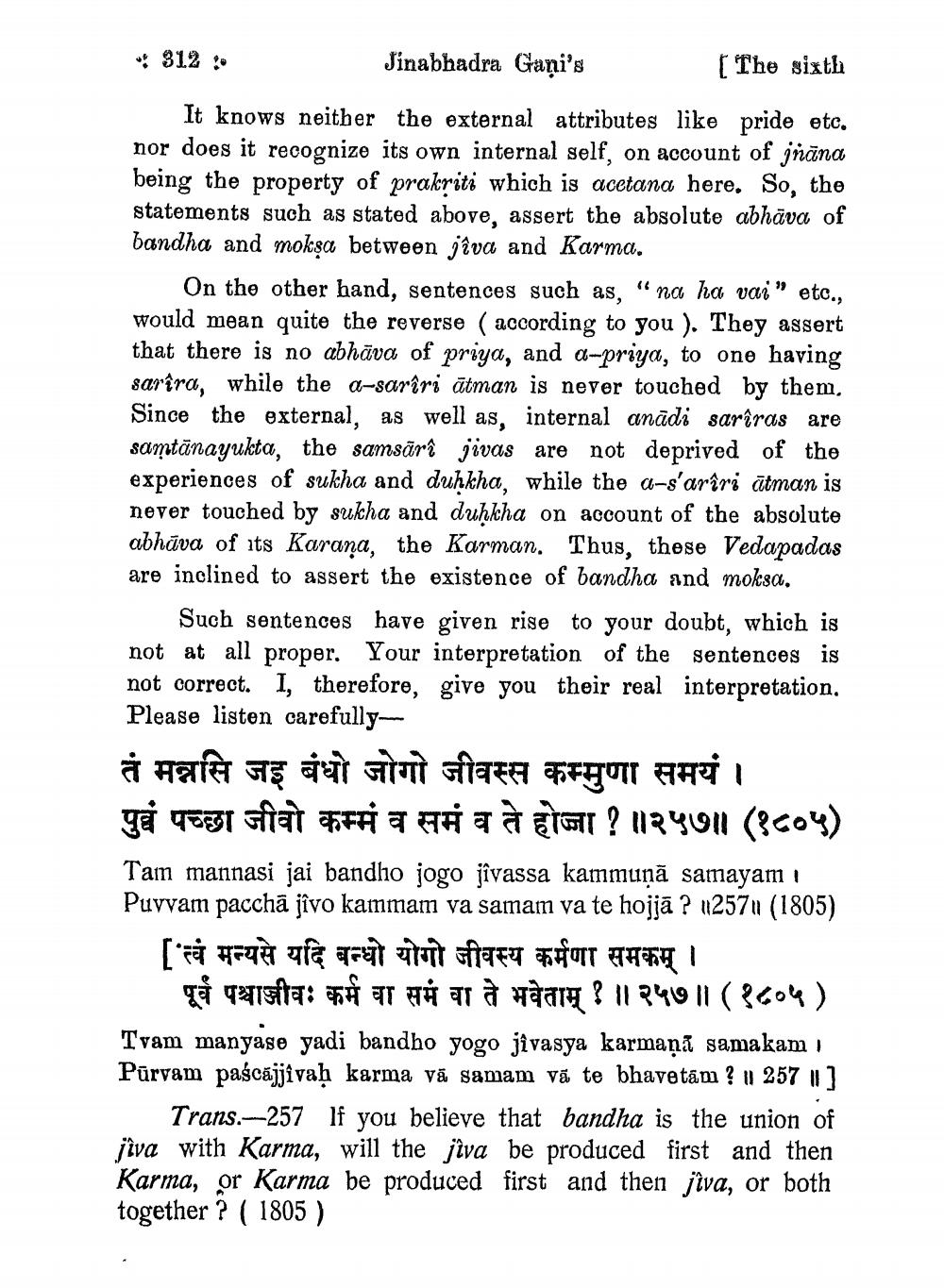________________
Jinabhadra Gani's
[The sixth
It knows neither the external attributes like pride etc. nor does it recognize its own internal self, on account of jnana being the property of prakriti which is acetana here. So, the statements such as stated above, assert the absolute abhava of bandha and mokṣa between jiva and Karma.
*312:
(4
39
On the other hand, sentences such as, na ha vai etc., would mean quite the reverse (according to you). They assert that there is no abhava of priya, and a-priya, to one having sartra, while the a-sarîri atman is never touched by them. Since the external, as well as, internal anadi sariras are samtanayukta, the samsarî jivas are not deprived of the experiences of sukha and duḥkha, while the a-s'ariri atman is never touched by sukha and duḥkha on account of the absolute abhava of its Karana, the Karman. Thus, these Vedapadas are inclined to assert the existence of bandha and moksa.
Such sentences have given rise to your doubt, which is not at all proper. Your interpretation of the sentences is not correct. I, therefore, give you their real interpretation. Please listen carefully
तं मन्नसि जड़ बंधो जोगो जीवस्स कम्मुणा समयं ।
पुवं पच्छा जीवो कम्मं व समं व ते होजा ? ॥ २५७॥ (१८०५)
Tam mannasi jai bandho jogo jîvassa kammuņā samayam Puvvam paccha jîvo kammam va samam va te hojjā? 257u (1805)
[स्वं मन्यसे यदि बन्धो योगो जीवस्य कर्मणा समकम् ।
gå qaneta: zå ar aú ar à xàag ? || 240 || (3604) Tvam manyase yadi bandho yogo jivasya karmaṇā samakam Purvam paścajjivaḥ karma va samam va te bhave tam? 257 ]
Trans-257 If you believe that bandha is the union of jiva with Karma, will the jiva be produced first and then Karma, or Karma be produced first and then jiva, or both together? (1805)




